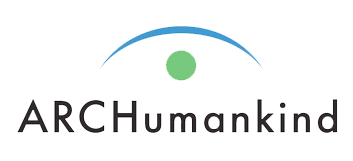We support the European Commission’s commitment to the ‘absolute prohibition of capital punishment, torture or other cruel, inhumane or degrading treatment or punishment’.
In accordance with this commitment, we think the present instrument would become more effective if it would be reviewed in line with the following concerns:
1. The regulation should consider in the title and elsewhere ‘…goods involved in capital punishment…’ For example, as the trade on organs harvested from killed prisoners, (now legalised in Iran), is of growing importance and is thus a result rather than a tool for capital punishment, it should definitely be considered in the regulation in an explicit form. This implies a thorough technical revision of items and procedures considered in the regulation.
2. Torture is very often an instrument for extra-judicial execution. Otherwise, some means and instruments used for capital punishment are also used for torture; e.g., cranes are used in Iran to maximise the suffering of the victims in the process of execution by hanging. Therefore, we consider that both capital punishment and torture should be dealt with as much as possible in the same framework. For instance, the group considered in Article 31 should clearly address both issues.
3. As the example of cranes in the above point demonstrates, it is not always easy to identify the specific goods used for punishment. We rather suggest for the European Commission, on the basis of objective criteria, to establish a list of countries of priority concern regarding the present regulation, and to, therefore, consider the import and export of goods on the basis of the specific information existing about these countries. Using the same example, cranes should be prohibited for export to Iran for instance, but not elsewhere, as far as the final destination would not be Iran. This means a new list of goods and services that are passible of ‘dual-use’, that is, normal activity, as well as torture, should be established. However, this list should only be used for a specific list of countries of concern, as it would entail a disproportionate administrative burden otherwise.
4. A listing of countries, personal, and moral entities engaged in torture activities should be established on the basis of the European institutions own resources as well as in verifiable and confirmed data supplied by third parties. The list of countries of concern should be used for the special application of trade control on ‘dual-use’ goods and services. The list of personal and moral entities should be used for possible sanctions.
5. The present regulation should establish transparent, objective and proportionate mechanisms for managing the lists mentioned in point 4, including the mechanisms of designation and periodic review.
6. Whereas we think the European Commission shall establish its own rules of work and consultation with other institutions according to the general laws and its working criteria (as considered in article 31), we believe it is also important to fully consider the reporting by and the consultations with the civil society. It would, therefore, be important for the European Commission to produce annual reports on the application of the present regulation, and to ensure the availability of these reports to the general public as well as for various interested parties.
7. The regulation should foresee a permanent vehicle for the European citizens to report to the European institutions’ cases of capital punishment and or torture, and their relation with the European trading activities. This vehicle could be used as an information source for managing the lists of entities mentioned in point 5.
(Paulo Casaca)
Executive Director
Alliance to Renew Co-operation among Humankind – ARCHumankind
Avenue des Arts 19 – 1210 Bruxelles Belgique
BE 0831.084.518 RPM Bruxelles
IBAN: BE77 3630 8165 4842
